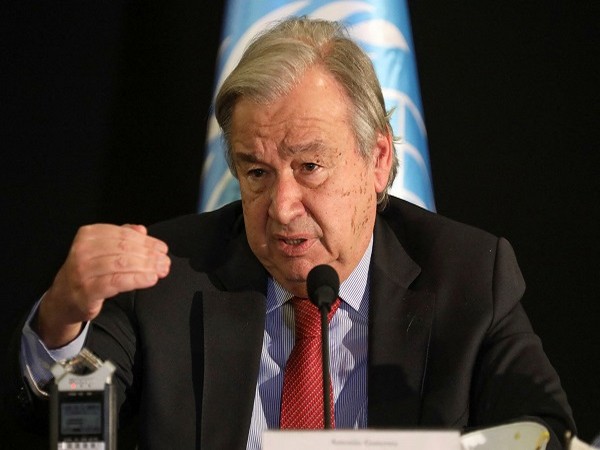
New York: UN Secretary-General Antonio Guterres on Wednesday said in his statement on two years of COVID-19 that the vaccine distribution is "scandalously unequal" because rich-country health is prioritised over the poor.
"It would be a grave mistake to think the pandemic is over. The distribution of vaccines remains scandalously unequal," said the UN chief, adding that manufacturers are producing 1.5 billion doses per month, but nearly 3 billion people are still waiting for their first shot. "This failure is the direct result of policy and budgetary decisions that prioritise the health of people in wealthy countries over the health of people in poor countries," said the secretary-general.
"This is a moral indictment of our world," the top UN official said.
"It is also a recipe for more variants, more lockdowns and more sorrow and sacrifice in every country. Our world cannot afford a two-tier recovery from COVID-19. Despite the numerous other global crises, we must reach our goal of vaccinating 70 percent of people in all countries by the middle of this year," the secretary-general spelled out.
Guterres underscored that governments and pharmaceutical companies need to work together to multiply the number of countries able to produce tests, vaccines and treatments by sharing licences and intellectual property and providing the necessary technological and financial support.
"At the same time, we need strong national vaccine-delivery systems at the ready -- including efforts to counter disinformation and get vaccines into arms. Science and solidarity have proven to be an unbeatable combination," added Guterres.
"We must re-dedicate ourselves to ending this pandemic for all people and all countries, and closing this sad chapter in humanity's history, once and for all," the UN chief stressed.
Guterres recalled that two years ago, the lives of people around the globe were upended by a virus and COVID-19 spread quickly and relentlessly into every corner of the world -- shutting down economies, choking off transportation networks and supply chains, closing schools, separating people from their loved ones and plunging millions of people into poverty.
He said that the pandemic's most tragic toll has been on the health and lives of millions, with more than 446 million cases worldwide, more than 6 million deaths confirmed, and countless more grappling with worsening mental health.
"Thanks to unprecedented public health measures, and the extraordinarily rapid development and deployment of vaccines, many parts of the world are bringing the pandemic under control," he said.